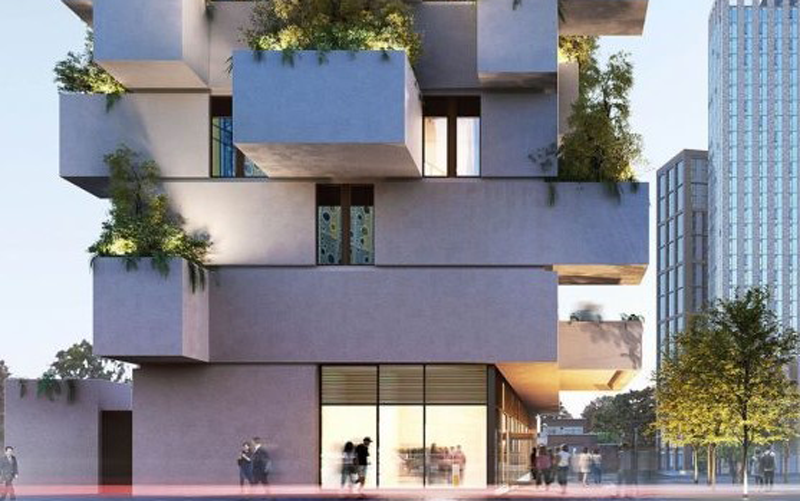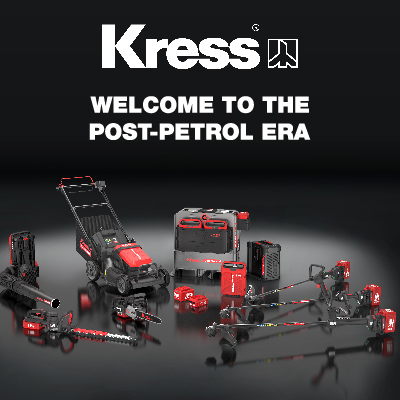
Green-tech provides lightweight soil and laser-cut grilles for award-winning ‘vertical forest’ hotel
Background:
The area around the North and East of Manchester city centre has been undergoing a renaissance over recent years, with exciting development and refurbishment taking place. One such scheme is the stunning new bio-diverse, cubist-style Leonardo Hotel.
Situated on the corner of Adair Street and Great Ancoats Street, the new 14-storey Leonardo Hotel replaced a weary looking 2-storey office building and adds a welcome link between the busy Piccadilly Station and the East Village Regeneration Zone.
Even before construction began, the scheme won a Society of Architects design award, one of the contributing factors undoubtedly being the 17 stunning Jenga-style tiered planting boxes: the architects, Stephenson Hamilton Risley Studio taking their inspiration from Milan’s Bosco Verticale (vertical forest).
The planters jut out from the main building at various heights, creating a juxtaposition of cantilevers not unlike a half-finished game of Jenga. Indeed, the planters were referred to as 'Jenga blocks' in the planning documents. Each planter is filled with shrubs, trees, and ferns, individually selected to thrive in the micro-climate created by each planting block.
The idea was to make an impact and add some much-needed green infrastructure and bio-diversity to Piccadilly’s East neighbourhood. The building certainly makes a statement and will house 275 luxury hotel rooms along with a ground floor bar, restaurant, gym and wellness suite, and outside seating area.
Green-tech involvement:
Accredited Supplier Green-tech was invited to landscape architects Re-form’s offices in Beehive Mills back in 2019, to discuss options for the high-level planters. As a result, the planters were specified with Green-tech’s Green-tree lightweight intensive roof soil, as well as a layer of expanded clay granules to bring up the level in the base, rather than using a heavier sub-soil or some other man-made void former. The intensive lightweight roof soil is around 30% lighter than standard topsoil, and due to the deeper planting of the trees, needs to contain more organic content and hold on to a little more water than the extensive substrate often found on sedum and wildflower green roofs.
A total of 48 cubic metres of lightweight roof soil was used for the 17 Jenga blocks, along with over 4,000 litres of lightweight expanded clay aggregate. This was supplemented on the ground planting with over 400 tonnes of topsoil and subsoil, 2,000 litres of compost and 48 tonnes of pea gravel and decorative silver-grey gravel. The ground level landscaping incorporated a mix of trees in hard and soft, irrigated by a mix of Mona underground capillary tanks and Mona Relief perforated pipes, and supported by Green-tech strap anchors.
The trees in hard were finished off with permeable resin-bound grilles, and for the trees along the front, custom-made grilles, featuring laser-cut Piccadilly East branding and drainage slots. These grilles are made from heavy-duty steel and finished by being hot-dip galvanised, then acid-etched and powder coated in a classic bronze finish, including the normally silver Piazza irrigation inlet. All the steel used in the production of these decorative grilles is recycled by our foundry in West Yorkshire.
To finish off the landscaping, over 200 square metres of Premium Weed Control matting and Ecomatt was supplied along with 2,000 litres of ornamental wood bark for ground cover.
Alasdair Innes, Green-tech Specification Advisor comments,
"It’s fantastic to see striking building design incorporating green-infrastructure, in a way that makes it really stand out in the local area. It was a pleasure to be asked to get involved supplying the lightweight soil and other ancillary landscaping materials."

